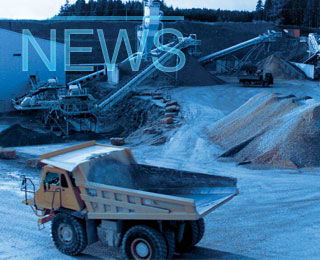Arawak Cement Co Ltd of St Lucy, Barbados, announced a turnaround in its finances in 2015. While it did not release any hard data, it described 2015 as a “very encouraging” year. The company reported improved operational efficiencies and a 20 per cent rise in exports when compared with 2014.
Chairman Arun Goyal said the improved performance resulted from strategic initiatives and “an adherence to the core objectives of sustainability and competitiveness as our driving force”.
Last October, the company carried out a considerable restructuring plan to reverse the trend of continuous losses ongoing since 2008. The two largest components of this were energy and labour. Some 40 workers were made redundant at the Checker Hall plant and a new General Manager, Manuel Toro, was appointed.
The cement producer plans to invest more than US$20m over the next three years in manpower training and equipment upgrades to reduce unscheduled plant stoppages by one-third, improve production efficiency by over 10 per cent as well as reduce its carbon footprint.
“At Arawak, we are focussed on adding value to the construction industry and are currently considering diversification and the opening of new business lines,” Mr Toro said. “We are also guided by the pillars – Safety and environment as our top priority, business sustainability and of course, delivering quality and freshness in every bag of Arawak Cement,” he added.
An aggressive export programme will be put in place, aiming to double revenue from this source in less than two years, providing the country with key foreign exchange and tax benefits.
However, since last November, Rock Hard Cement, led by Mark Maloney, has entered the market. Mark Maloney said cement prices had dropped by 30 per cent since his company entered the market, falling from US$220/t to US$160/t. He also claimed an improvement in cement and customer service quality.
